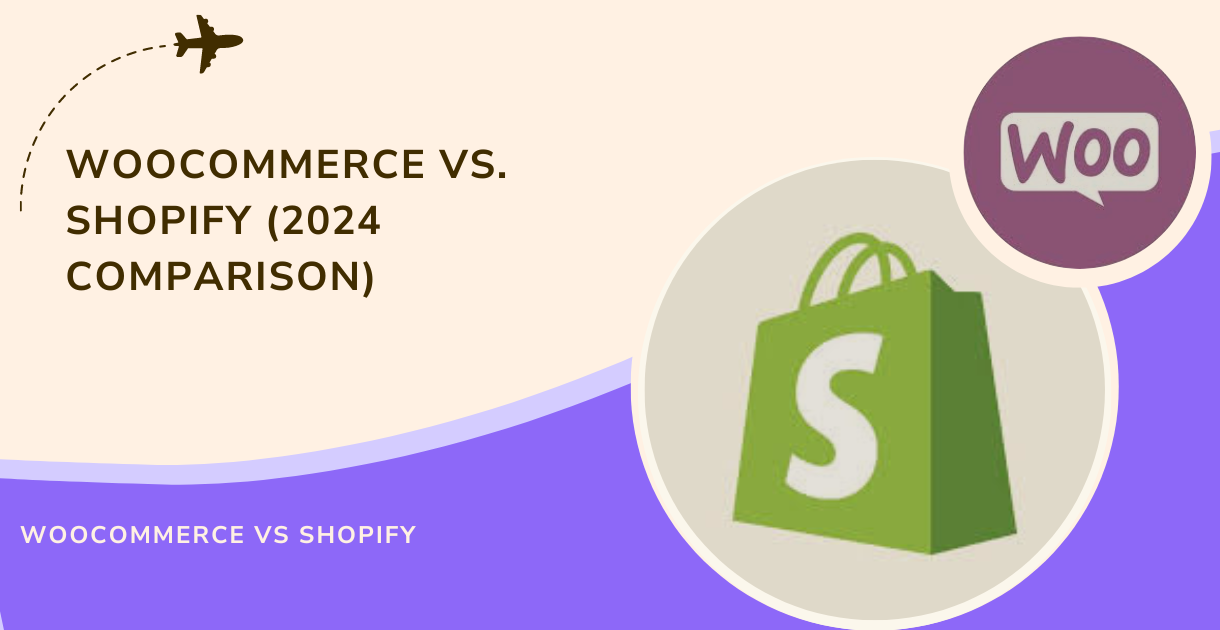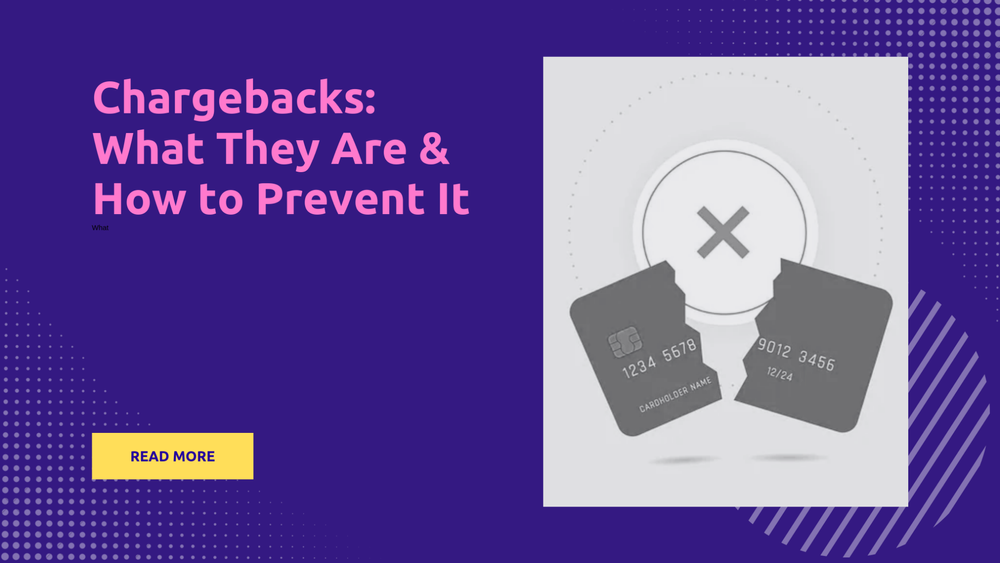WooCommerce Vs. Shopify - Which is Better in 2024?
By Sonaksh Singh Rawat on

Are you on the verge of starting your own online store? or are you looking to take your business to the next level?
Regardless, it is quite obvious that with the number of options available to help you start an online store, it can be quite difficult to find the best-suited platform for your online store. Shopify and WooCommerce are two of the best ecommerce platforms in the world, both of these platforms offer exemplary features to help online store owners start and run an online store with the utmost ease.
In this article, we’ll take a look at Shopify and WooCommerce in detail. This will help online store owners like yourself to make an informed decision about the best ecommerce platform for your online business needs.
WooCommerce vs Shopify: An Overview
Before we go into detail, you should know that WooCommerce is not a standalone platform, it is a WordPress Plugin. Shopify, on the other hand, is a standalone ecommerce platform.
What is Shopify?
Shopify, as mentioned above, is a standalone ecommerce platform that helps individuals start and manage an online store. Although it is a subscription-based paid platform, it does offer a free trial. It makes starting an online store extremely simple, even for individuals with no technical knowledge. It offers a wide range of customization features as well as a multitude of third-party integrations.
What is Woocommerce?
WooCommerce, unlike Shopify, is not a standalone platform, but rather a WordPress Plugin that helps set up an online store without the slightest of inconveniences. WooCommerce has been extremely popular since its launch and has helped millions of individuals start an online store. To begin with, it is extremely user-friendly, it offers personalization options, it comes with a plethora of useful features, and is also easy to navigate.
WooCommerce vs Shopify: Comparison
WooCommerce vs Shopify: Detailed Comparison
Dropshipping
Dropshipping, for those who don’t know, is an online business model that allows online stores to sell products without the need for stocking products or warehouse/inventory management. In dropshipping, the commerce platform helps individuals/store owners by connecting with reliable suppliers and manufacturers who source/manufacture products as well as deliver them. The store owner is just the middleman.
Shopify and WooCommerce are two of the best dropshipping platforms you can get your hands on. But to choose the best-suited platform for your business, you need to know the difference between the two, so let's get right into it!
Shopify: Shopify is an amazing dropshipping platform that offers store owners as well as prospective merchants a way to start and run an online dropshipping business. It comes with a ton of features and functionalities as well as a wide range of third-party applications to further streamline business operations. Moreover, Shopify also offers integration with other online marketplaces like Oberlo and AliExpress.
WooCommerce: WooCommerce, is yet another brilliant dropshipping platform that is extremely easy to set up and use. This WordPress extension comes with a multitude of dropshipping extensions, it can all be found in its repository or even a simple Google search will give you what you want. Just like Shopify, WooCommerce is extremely customizable and is amazingly easy to use.
Verdict: Although both are amazing dropshipping platforms, WooCommerce comes out on top. It’s because of its ease of use and customization abilities. Shopify, on the other hand, does offer customization options but they may be limited or you may have to shell out some money for the same, whereas WooCommerce is completely free.
Pricing
Among the most important factors when starting an online business is the cost involved, let’s take a closer look at the same.
Shopify: Shopify isn’t free although it does offer a free trial period of 14 days. Apart from that, Shopify has plans for businesses of all sizes. The price can vary from $9 a month to $299 a month. In addition to that, businesses also incur other charges such as transaction charges and hidden charges.
WooCommerce: WooCommerce is a completely free WordPress Plugin but then again, there are quite a few other charges that may apply, such as paid plugins and other paid extensions.
Verdict: Although both Shopify and WooCommerce offer great value for money, But when it comes to cost the best choice would be dependent on the budget and needs of your business.
Ease of Use
Ease of use is yet another important factor. From setting up and installation to navigating and using it, ecommerce platforms need to be simple and efficient.
Shopify: Creating an online store on Shopify is extremely simple. All one has to do is, head over to Shopify and create an account with the relevant business details. Once that is done, they can start designing their online store and add products to it with ease. Additionally, Shopfy also allows for easy integration with numerous third-party applications.
WooCommerce: WooCommerce is also quite simple to set up and use. But the main problem is that individuals need to have a good grasp of how WordPress works and a little technical knowledge can also be of great help.
Verdict: The answer here is simple, Shopify is the clear winner because of its simple user interface and furthermore, individuals need not have any technical knowledge to be able to use Shopify and the same can’t be said about WooCommerce.
Scalability
If you want a successful business, you need to make sure it is scalable and the ecommerce platform you choose can shed light on your business’s ability to grow and adapt to the ever-changing ecommerce industry.
Shopify: Shopify makes scaling a business very simple and straightforward, it helps in streamlining the technical aspects of running an online business. In addition to that, online store owners have the option to choose a better Shopify plan as the business grows. But it could cost the business some money!
WooCommerce: When it comes to WooCommerce, the scalability of any online business depends on the hosting platform chosen. Furthermore, WooCommerce’s hosting options will cost a lot of money as compared to Shopify plans.
Verdict: Hands down, Shopify is the best out of the in terms of scalability. It offers a ton of features for growing the business and is more cost-effective than WooCommerce.
Customer Support
Remember, a good dropshipping platform also addresses the concerns of the merchants who use it. As a business owner, you may need guidance or help from the dropshipping platform from time to time, hence choosing a platform that offers impeccable customer support is extremely important.
Shopify: Shopify offers its users customer support 24/7. Online store owners can contact customer support through phone, email, as well as chatbots. To further add to it, Shopify also has a ton of online resources and a community from where individuals can seek help.
WooCommerce: Since WooCommerce is an open-source plugin, it lacks customer support Although it does have a ton of online resources through which people can find help. Customer support may be provided by the hosting platform.
Verdict: It goes without saying, Shopify is the winner here.
Third-Party Integrations
Third-party applications help in boosting an online store’s features and functionalities, especially when your brand is scaling up. These integrations can help either make or break your online business.
Shopify: Shopify has a third-party integration for every aspect of running an online business. It comes with a number of free integrations as well as paid ones. These integrations can help with streamlining marketing campaigns, and other operational functions.
WooCommerce: WooCommerce, as mentioned before, is an open-source plugin in WordPress, this means that there is a huge library of extensions and plugins, most of which are free.
Verdict: WooCommerce is the clear winner here, with the number of free extensions you can get, there is no doubt that it takes the cake over Shopify.
WooCommerce vs Shopify: Pros and Cons
Let’s take a glance at the pros and cons of using Shopify and WooCommerce. By understanding these differences, you can choose the dropshipping platform more suited for your online business.
Shopify Pros
- Shopify is extremely easy to install, set up, and use. Furthermore, it comes with an intuitive dashboard which makes it easy to run an online business.
- Shopify also allows for easy financial transactions with the help of integrated payment gateways. Customers can use debit cards, credit cards, or even other forms of online payment to make purchases.
- The best thing about Shopify is that it offers customer support 24/7 through phone, email, and even chatbots.
- Shopify also offers a wide range of themes and customization options. While some of them are free, there are paid versions available too!
- Shopify allows for easy integration with third-party applications. This can help in streamlining a ton of operational tasks, thus making it easy to manage an online business.
Shopify Cons
- Shopify can be a bit heavy on the wallet. It is not free, there are plans for every business size but there are also hidden changes as well as transactional changes that apply. This may add up to quite a hefty amount.
- Although it offers a ton of customization options, a few select features require individuals to have some technical knowledge. If not, they may need to hire a well-versed developer.
- If you’re planning to migrate your Shopify store, then it may be a hassle, especially if you’re using Shopify-specific features.
WooCommerce Pros
- Since it's an open-source platform, developers or individuals with technical knowledge can customize it.
- It is one of the most cost-effective options you can get your hands on
- Since it's a WordPress application, it can offer great SEO features and functionalities. This will help your online store rank better in Google search results.
- WooCommerce also offers a ton of integrations and extensions, most of which are free. This can help in customizing your online store exactly the way you want it.
- WooCommerce is also highly scalable and can handle large order volumes.
WooCommerce Cons
- If you want to use WooCommerce to its fullest extent, then you need to have extensive technical knowledge about the same.
- Since it's an open-source platform, it does not offer hosting options and when you’re self-hosted, you’re responsible for updating the site, safety & security, as well as backing up data.
- WooCommerce does not offer customer support, although there is an active community where you can seek help.
Which is the Right Ecommerce Platform for Your Online Store?
Choosing the right platform for your online store can be an easy task if you have the right information. Here are a few things you should take into account when you’re making this decision.
- Make sure the ecommerce platform you choose offers your online business the ease of use. It should help you streamline and manage business operations.
- You should choose an ecommerce platform that helps your business scale and grow with the ever-changing ecommerce industry and trends.
- Make sure the dropshipping platform you choose should have great customization options that can help create an online store, just the way you want it.
- The dropshipping platform you choose should have an extension or a third-party application to help streamline operations.
At the end of the day, the needs of your online business will dictate which ecommerce platform you use.
FAQs on WooCommerce Vs. Shopify
Is Shopify good for beginners?
Yes, Shopify is a great ecommerce platform for beginners. It is extremely easy to use and comes with an intuitive dashboard. The best part is that individuals do not need any kind of technical knowledge to use Shopify,
What is the difference between ecommerce and WooCommerce?
The term “ecommerce” refers to online business transactions, like buying a pair of shoes online. On the contrary, WooCommerce is a platform through which these online business transactions can be conducted.
Which ecommerce is better for small businesses?
It depends, if you’re looking to start an online store but do not have any technical knowledge, then Shopify is a great choice. On the other hand, if you have financial restrictions, you can choose WooCOmmerce, but it requires technical knowledge of WordPress.
Is Shopify better than WooCommerce?
Both have their pros and cons. The right dropshipping platform depends on the needs of the business.
Is Shopify Cheaper than WooCommerce?
No, Shopify is not cheaper than WooCommerce.




